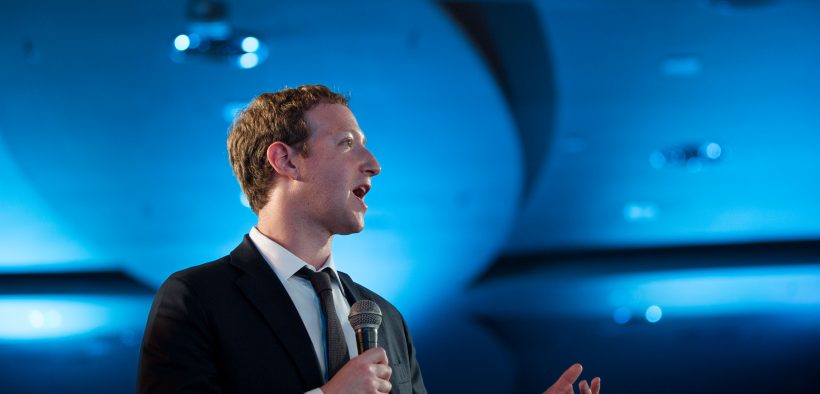Amid Investigations and Lawsuits, Facebook and Other Tech Giants Up their Lobbying Game

Amazon, Facebook and Google for the first time ever are among the top 15 lobbying spenders in a single quarter.
(By Karl Evers-Hillstrom, Center for Responsive Politics) Facing tremendous pressure from regulators and lawmakers from both parties over a litany of issues ranging from privacy to antitrust, the stakes have never been higher for tech industry giants such as Facebook, Google and Amazon.
That’s where lobbyists come in handy. Equipped with enormous budgets, the massive companies are rolling out hundreds of former political aides and government employees to plead their respective cases. With Amazon spending $4.2 million, Facebook shelling out $4.1 million and Google chipping in $3.2 million on second-quarter lobbying, this marks the first time all three companies ranked among the top 15 lobbying spenders in a single quarter.
Facebook’s second-quarter lobbying spending far surpasses any number it has posted before over a single three-month period.
The company certainly has cause for concern. Mark Zuckerberg’s social media titan was hit with a record $5 billion fine from the Federal Trade Commission and a $100 million fine from the Securities and Exchange Commission Wednesday over lax privacy policies that enabled Cambridge Analytica to access users’ data without authorization.
As if to rub salt in the wound, the Department of Justice announced Wednesday it was launching an antitrust probe into online platforms, presumably including the major tech companies that President Donald Trump has frequently derided.
As part of its multi-million dollar second-quarter lobbying operation, Facebook deployed former Federal Communications Commission Chairman Kevin Martin, marking the first time Martin has registered as a lobbyist since 2014. Facebook reported making contact with the FTC and FCC, among other major federal agencies.
Zuckerberg told investors Wednesday the government needs to come up with a regulatory framework for online privacy, one that the company will surely want a hand in developing.
While high profile Republicans accuse Facebook of being biased against their party and supporters, Democrats have also gone after the social media giant over its data privacy policies and other aspects of its business model. Rep. Brad Sherman (D-Calif.) raised eyebrows Wednesday when he predicted Facebook’s proposed cryptocurrency system would result in more deaths than the 9/11 terror attacks.
Amazon has its own troubles with members of Congress. Republicans urged Trump Thursday to block the Department of Defense from awarding a $10 billion cloud computing contract, which will go to either Amazon or Microsoft. Amazon retained one of Trump’s largest bundlers as a lobbyist just weeks before the contract was expected to be issued, following a suggestion from the president he might interfere with the process.
The company also paid Trump-connected lobbying firm Ballard Partners $70,000 in the second quarter to make contacts with the White House and other areas of government.
On Thursday, Rep. Tulsi Gabbard (D-Hawaii) became the most recent presidential candidate to go after Google. She filed a lawsuit against Google, claiming the Silicon Valley company suspended her campaign’s advertising account just after the first Democratic debate. Gabbard’s line of attack — that Google censored her — is remarkably similar to that of some outspoken Republicans in Congress.
The three big tech companies deployed 178 members of the revolving door club in the second quarter. Eighty-six percent of Facebook’s lobbyists previously held a government position, compared to 81 percent for Google and 70 percent for Amazon.
The Internet Association, which represents the tech giants, has tried its best to please both the Trump administration and angry Democrats. It awarded Ivanka Trump the “Internet Freedom Award” during a May gala, and gave House Speaker Nancy Pelosi (D-Calif.) a lifetime achievement award. The group has spent nearly $1.4 million lobbying this year.
The internet industry, which at one point barely registered on Washington’s radar, has steadily increased its lobbying spending every year over the last decade amid skyrocketing scrutiny.
Total Lobbying Remains Steady in Trump Era
Total lobbying spending dipped slightly in the second quarter, bringing the total to $1.72 billion through June 30. That’s slightly less than last year’s $1.76 billion figure but still the second-highest since the lobbying peak in 2010.
The sky-high number is bolstered by the ever-reliable pharmaceutical industry, which has already spent $155 million this year. The industry is once again facing challenges from Congress — it was dealt a blow Thursday when the Senate Finance Committee advanced a bill to reduce drug prices.
Pharmaceutical executives met with Trump Wednesday amid concerns that the Trump administration will take executive action meant to curb drug prices. Among the drugmakers to post big spending numbers, Johnson & Johnson increased its spending to $2.2 million from $900,000 this time last year, while Eli Lilly & Co spent $2.6 million, up from $1.6 million.
















I didn’t catch where lobbying was discussed in the U.S. Constitution.
‘When the Constitution was crafted by Framers such as James Madison, their intent was to design a governmental system in which powerful interest groups would be rendered incapable of subduing the general will. According to Madison, a faction was “a number of citizens, whether amounting to a minority or majority of the whole, who are united and actuated by some common impulse of passion, or of interest, adverse to the rights of other citizens, or to the permanent and aggregate interests of the community.” Madison considered factions as dangerous, since they threatened to bring about tyranny if their control became too great. Madison, writing in the Federalist Papers, suggested that factions could be thwarted by requiring them to compete with other factions, and therefore the powerful force of one faction could be counteracted by another faction or factions.[1] Today, the term “special interest” has often been equated with Madison’s sense of “faction”.’
Right to free speech – right to free spending for influence? Apparently.